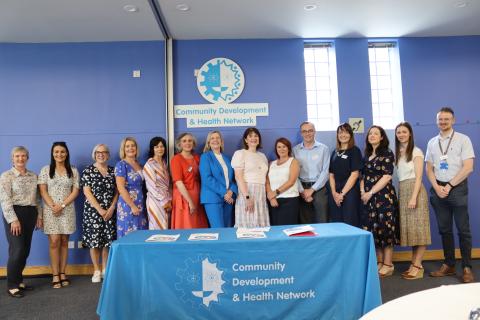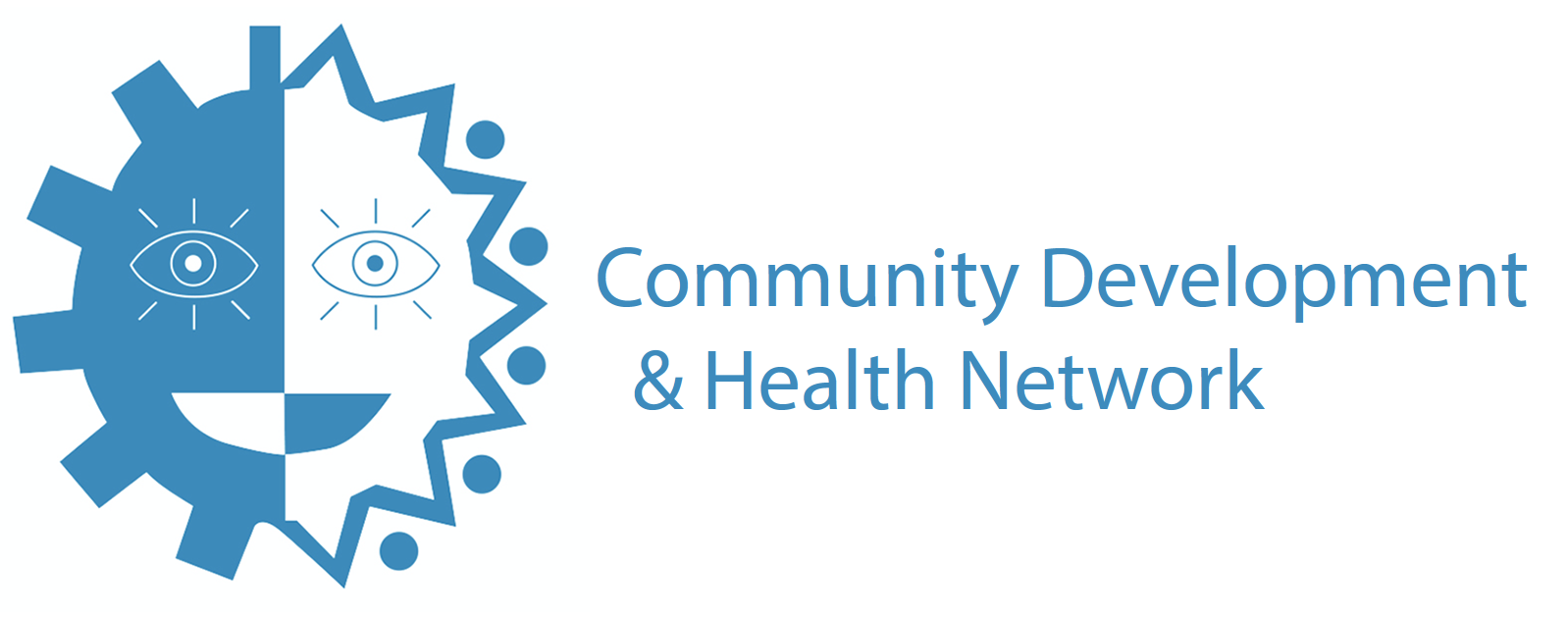New CDHN Study Sheds Light on Crucial Link Between Medication Safety and Health Inequalities in NI

On Friday (16 June 2023) the Community Development & Health Network (CDHN) launched their new research report ‘Our Lives, Our Meds, Our Health: Exploring Medication Safety through a Social Lens’. This exploratory study was the first of its kind in Northern Ireland (NI) to improve the understanding of how people's social and personal circumstances can influence how they take their medications safely. The report highlights that medication safety is a health inequalities issue, often underreported in health research, policy, and practice.
In late 2021, the Department of Health (DoH) Strategic Planning and Performance Group (SPPG) commissioned the cross-sectoral, collaborative research with people in communities as part of the Transforming Medication Safety in Northern Ireland (TMSNI) plan. Presenting at the launch event, lead researcher, Helen McNamee, said:
“Our findings highlight that any improvement in medication safety will require health and social care systems to take into account people’s unique lives, experiences, and the social circumstances that they live in. We know just how busy people’s lives are; juggling jobs with caring responsibilities, and social factors that can reduce people’s ability to take their medication as prescribed. Such as, difficulties in accessing public transport to attend appointments or visit a pharmacy, opening their medication or remembering to take it.
She added: “This is a fascinating piece of research, involving people in communities and health and social care participants throughout the process. The research found that our ability to assess, understand and use medication information correctly is influenced by our family and friends, community networks, and the wider media.”
The research calls for the following recommendations to be implemented:
- Review staff training to include better two-way communication with people about their medication to improve their health and well-being outcomes.
- A trustworthy community engagement programme, tailored to local needs on using prescribed medicine safely, reporting any medication errors, and clear guidance on disposing unused medication.
- Improved public information and access to medication reviews to empower people to discuss and make decisions about their medication.
- Improved guidance and pathways for offering people alternatives to medication within the community health and social care setting.
Speaking at the event Professor Cathy Harrison, Chief Pharmaceutical Officer said:
"In Northern Ireland we are fortunate to benefit from effective systems for the safe prescribing, dispensing and administration of medicines. However, we know that errors can still occur, in any walk of life, and we are committed to supporting improvements that aim to reduce or prevent the risk of harm to patients. The evidence in this research provides the opportunity to learn about how people’s everyday lives and social circumstances can impact on their ability to take medication as prescribed and inspire us to drive improvements in medication safety. The report recommendations will further inform the implementation of the strategy ‘Transforming Medication Safety in Northern Ireland’ to improve safe practices with medicines and support a medication safety culture within our population.”
Other key speakers at the event included Jenny Irvine, ARC Healthy Living Centre, Irvinestown, Una McRoberts, Ardoyne and Shankill Health Partnership and Jean Patterson, South Eastern Health and Social Care Trust. They all commended the research for giving a voice to people from across NI, particularly those living in deprived areas experiencing poorer health outcomes where medication use is higher.
Joanne Vance, Director of CDHN commented:
"We are grateful to the research participants, and everyone involved in the co-production of this study. Your invaluable insights have shown why medication safety is a health inequalities issue. We know how the unequal distribution of power and resources, contribute to medication harms both locally and globally. Our challenge now is for communities and our health and social care system, to share resources and work together, to empower patients and improve economic and health outcomes for all”.
The research report is available to download here
Note to editors:
In NI, people from the most disadvantaged communities suffer a heavier burden of illness and have higher mortality rates than people from the least deprived areas (DoH, Health Inequalities Report, 2023). 50% more prescription items are dispensed in the most deprived areas of NI compared to the least deprived (NI General Pharmaceutical Services 2021/22).
In total, 88 people took part in the research focus groups; 63 community participants across eight focus groups, socially disadvantaged areas and those more at risk of medication related harm, and 25 people who work in health and social care across four focus groups including pharmacists, GP and GP practice staff, social workers and domiciliary care staff.
The Department of Health (DoH) launched the Transforming Medication Safety in NI plan (2020) in response to the World Health Organisation’s (WHO) Third Global Patient Safety Challenge ‘Medication without Harm’. The goal is to reduce severe, avoidable medication-related harm globally by 50% over the next 5 years.
The research used a Community Based Participatory Research (CBPR) approach. Through this approach, the stakeholders (people in communities, health and social care, government and academia) played an integral role in co-constructing the research process. This collaborative approach not only shaped the research, ensuring people in communities were at the centre of the work. It also enhanced the stakeholders knowledge and understanding of the topic.
For further information about the research, please contact Helen McNamee, Research and Policy Manager by email at helenmcnamee@cdhn.org
For media enquiries please contact Shannon Keegan, Policy and Communications Officer by email at Shannon.keegan@cdhn.org


